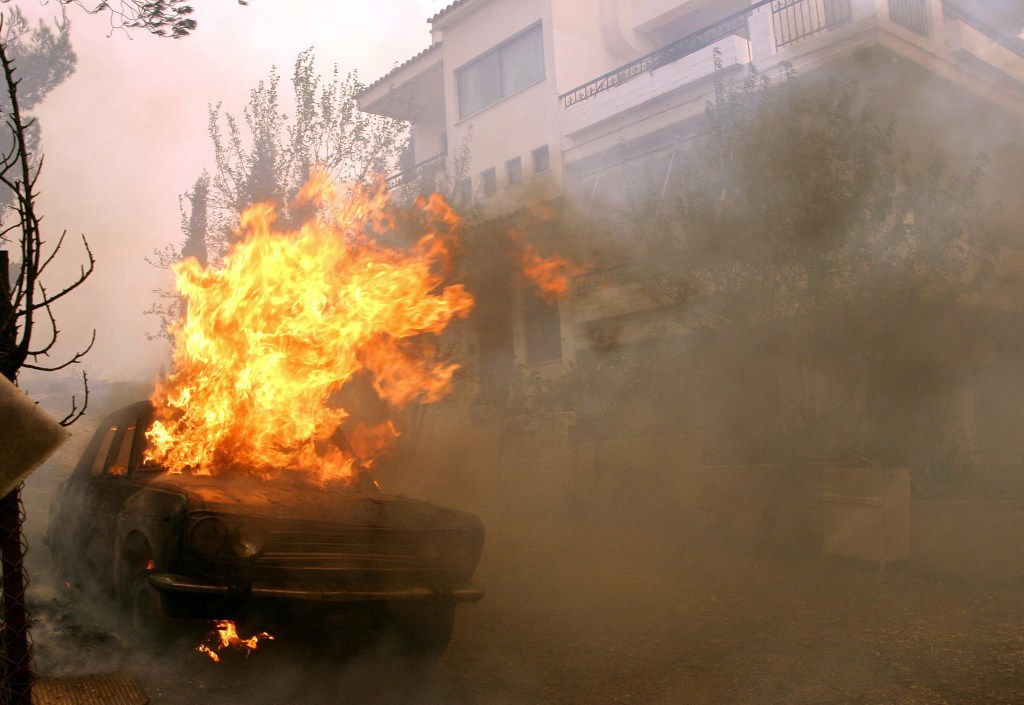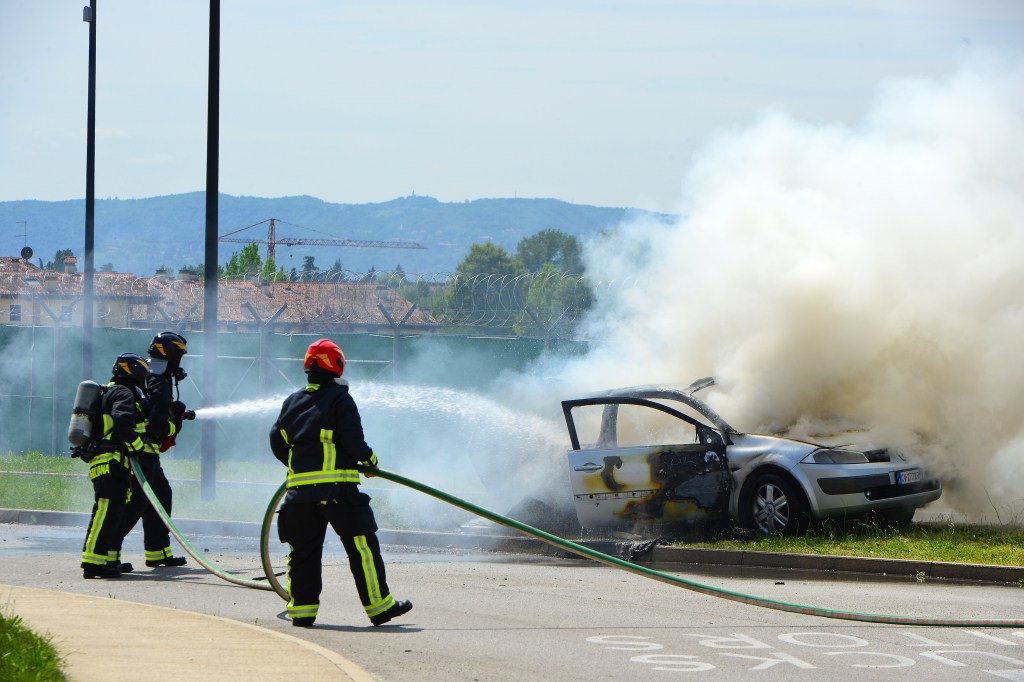
EVs Less Likely to Catch On Fire Than Gas-Hybrids More Than Both Combined
At MotorBiscuit, we do our share of stories about electric vehicles burning up, as do most news outlets. Part of the reason is that these aren’t like normal fires. Instead, they can take many hours to put out, with the possibility of reigniting once dumped off in the tow yard. And then there is the whole Chevy Bolt fiasco. But now, a study shows EVs are less likely to catch on fire than gas-powered or hybrid vehicles.
Hybrids most likely to catch fire of the three

Surprising as that is, that’s not even the big news. Compiling records from the National Highway Traffic Safety Administration and the National Transportation Safety Board, show that hybrid vehicles are more likely to catch fire than electric or gas-powered vehicles combined.
Out of every 100,000 cars sold, hybrids have more fires. Analysts at AutoInsuranceEZ looked at the two safety agency’s data, and data from the Bureau of Transportation Statistics to come up with the numbers. It found that hybrid-powered vehicles caught fire per 100,000 sold. Gas-powered vehicles had 1,530 fires, with EVs involved in only 25 fires per 100,000 vehicles sold.
The conclusions can be parsed in different ways. With so many more vehicles with internal-combustion engines, this category still leads for the most fires, with almost 200,000 last year. Hybrids racked up 16,051 fires, with EVs totaling 52 for all of 2021.
Hybrids and EVs are still relatively new-but what will the numbers be in 20 years?

Also, the study doesn’t factor in the age of the vehicle. Hybrids and EVs are still relatively new. Once they get older, and with more miles driven, we’ll see how well they will fare. Older vehicles see less maintenance, and obviously, more miles mean more wear and tear.
Interestingly, the company also looked at recalls resulting from fires in all of 2020. Gas-powered vehicles were almost the highest number with 1,085,800 recalls. EVs came in second with over 150,000, while hybrids totaled 32,100 recalls in 2020. But with every Chevy Bolt made between its introduction in 2017 to now, the 2021 recall numbers should be much higher for electrics.
Since its introduction in 2016 as a 2017 model, Chevy has produced almost 105,000 Bolts. So that number alone is two-thirds of the total EV recalls in 2020. But it still falls way behind recalls for gas-powered vehicles.
What causes these fires?

So what’s causing all of these fires? According to the stats, fire risks for EVs and hybrids were mostly due to issues with batteries. In gas-powered vehicles, it was mostly electrical shorts that could potentially cause fires. But for hybrids, most fire risks actually led to full-blown fires.
Obviously, as both gas-powered and hybrid models give way to EVs, we’ll see these numbers change. But keep in mind that with electric vehicles still a new thing in the public’s eyes, they’ll get much more scrutiny. That means news outlets will focus on vehicle fire coverage more for them. And especially when fires are spontaneous, and the cause unknown, as with the Bolt, the scare factor is too big for those outlets to ignore.



